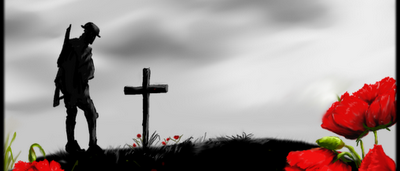Rupert Brooke: The Soldier
Posted on 2nd September 2021
The 27-year-old Rupert Brooke was already an established poet feted by the literati and those such as the Bloomsbury Set before the outbreak of the Great War, as much admired for his boyish good looks it seems as he was his literary abilities attracting the attention of both men and women in equal measure which caused him some early confusion.
HHe was the son of a Master at Rugby Public School and had a sheltered if not gilded childhood, but one which allowed him to dream and visualise his picture of an idyllic England, the rural paradise he expressed in his poetry, though always with wit and humour.
His was not an England of shipbuilding, blast furnaces and mines but one of panoramic vistas, medieval churches and lakes glistening in the summer sun. It was a country worth fighting for so when the opportunity came to do so he embraced it with unquestioning enthusiasm and desire.
In a more cynical age such unbridled patriotism is treated with scorn and modern assessments of Brooke’s poetry have reflected this but then Brooke never lived long enough to experience the worst aspects of combat and so his idealistic verse unvarnished and uncorrupted by events or experience merely reflect the feelings of many swept up in the enthusiasm of those early months of the war.
Brooke’s connections ensured that even with no military experience or indeed the required training he was commissioned as a sub-Lieutenant in the Royal Navy Reserve, but Rupert’s war was to be a short one.
On 23 April 1915, he died in delirium on-route to Gallipoli from the effects of a mosquito bite:

The Soldier
“If I should die, think only this of me:
That there’s some corner of a foreign field
That is forever England. There shall be
In that rich earth a richer dust concealed;
A dust whom England bore, shaped, made aware,
Gave, once her flowers to love, her ways to roam,
A body of England’s, breathing English air,
Washed by the rivers, blest by the suns of home.
And think, this heart, all evil shed away’
A pulse in the eternal mind, no less
Gives somewhere back the thoughts by England given;
Her sights and sounds; dreams happy as her day;
And laughter, learnt of friends, and gentleness,
In hearts at peace, under an English heaven,”
Share this post:





